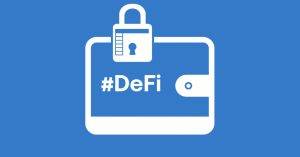Introduction
Decentralized Finance (DeFi) offers the promise of financial freedom and control over your assets like never before. However, this newfound autonomy also comes with heightened responsibilities, especially when it comes to security. In this article, we’ll explore essential DeFi security best practices to help you protect your assets and navigate the potential risks associated with decentralized finance.
Understanding DeFi Security
DeFi platforms operate on blockchain technology and smart contracts, which are designed to be secure. However, security breaches and vulnerabilities can still occur, making it crucial to adopt a proactive approach to safeguarding your investments. Here are some vital DeFi security best practices:

-
Choose Reputable Platforms:
Begin by conducting thorough research to select reputable DeFi platforms. Look for projects with a strong track record of security and transparency. Explore community reviews and audits.
-
Diversify Your Investments:
Avoid putting all your assets into a single DeFi protocol. Diversification can help spread risk. Allocate your funds across multiple platforms to minimize potential losses from a single breach.
-
Keep Software Up-to-Date:
Ensure your wallets, browsers, and other software used for DeFi interactions are up-to-date. Developers frequently release security patches and updates to address vulnerabilities.
-
Use Hardware Wallets:
Whenever possible, store your assets in hardware wallets rather than hot wallets (online wallets). Hardware wallets are less susceptible to hacking as they are offline devices.
-
Enable Multi-Factor Authentication (MFA):
Activate MFA for your accounts on DeFi platforms. This extra layer of security requires you to provide a second verification method (e.g., SMS code, app-generated code) in addition to your password.
-
Beware of Phishing Attempts:
Be cautious of phishing emails, websites, or social media messages. Always double-check website URLs and never share your private keys or recovery phrases with anyone.
-
Use Strong, Unique Passwords:
Create strong, complex passwords for your DeFi accounts. Consider using a password manager to generate and store them securely.
-
Stay Informed:
Keep yourself informed about the latest security threats and best practices in the DeFi space. Follow news outlets, forums, and official channels of DeFi projects for updates.
-
Audit Smart Contracts:
If you’re technically inclined, consider auditing smart contracts yourself or rely on third-party auditing services. Transparent DeFi projects should readily provide their contract code for review.
-
Beware of Yield Farming Risks:
While yield farming can be profitable, it also carries risks. Research the projects you’re farming with, understand the associated risks, and start with smaller amounts.
-
Regularly Monitor Your Investments:
Periodically review your DeFi portfolio and transactions for any unauthorized or suspicious activities. Immediate action can mitigate potential losses.
-
Prepare for the Worst:
Have a plan in case of emergencies. Know how to recover your assets if you lose access to your wallet or if a platform experiences issues.
Conclusion
DeFi security is of paramount importance when navigating the decentralized finance landscape. By following these best practices, you can significantly reduce the risks associated with DeFi investments and transactions. Remember that the DeFi space is dynamic, so staying informed and adapting to new security measures is crucial to safeguard your assets effectively.
Protecting your financial future in the world of decentralized finance requires a proactive approach. By implementing these security best practices, you’ll be better prepared to enjoy the benefits of DeFi while minimizing potential risks.
Disclaimer: This article is for informational purposes only and does not constitute financial, investment, or legal advice. Readers should conduct their research and seek professional guidance when dealing with cryptocurrency and financial matters.
